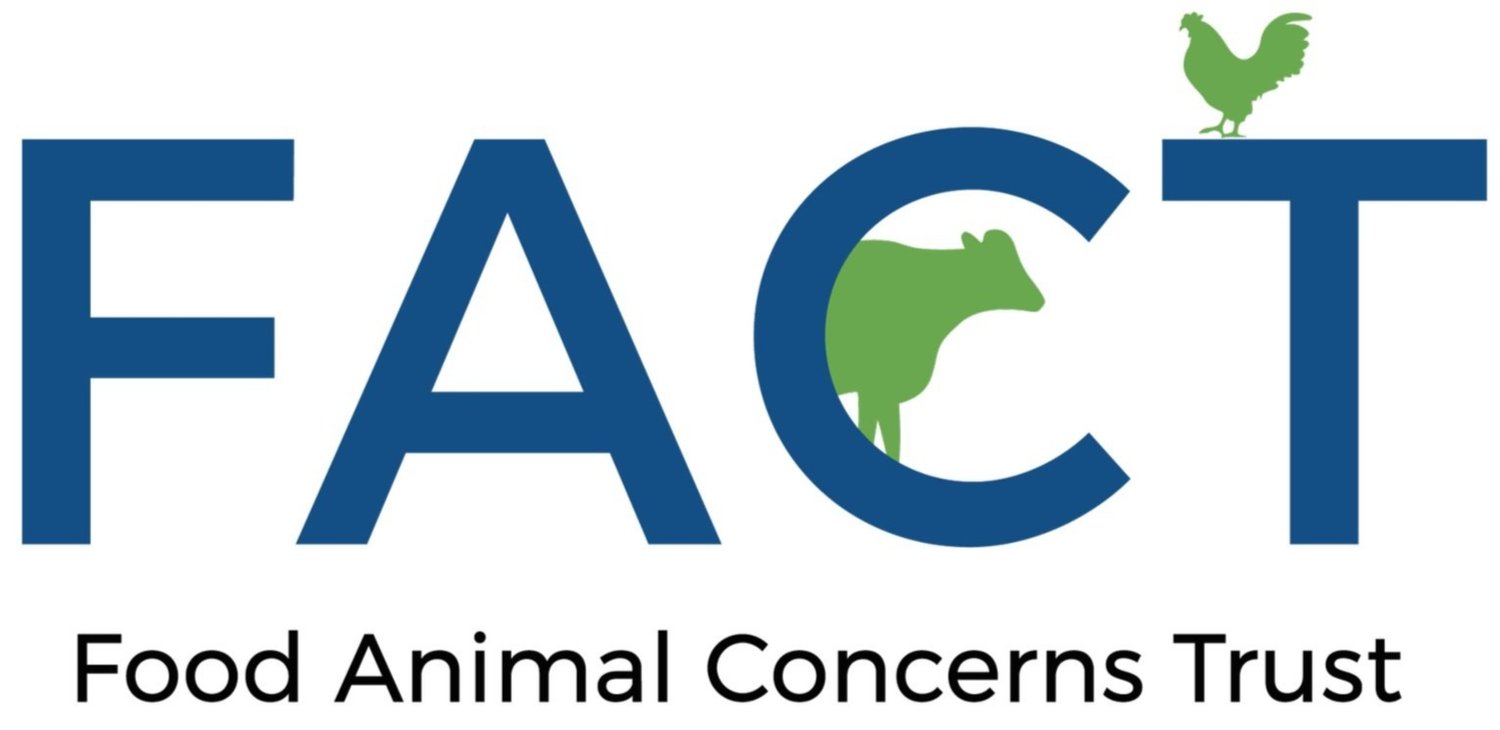Black Vultures: The Growing Livestock and Poultry Predator
By Samantha Gasson, Humane Farming Program Manager
When you think of livestock and poultry predators you probably think of hawks, a fox or two, or maybe even a coyote, but I bet you never think of a black vulture, that is unless you live in an area this bold raptor calls home.
I had nothing but happy thoughts when it came to vultures prior to 2020, always thinking of Disney’s The Jungle Book beatnik vultures and how beautifully they ride the currents while migrating. That is until we lost our first lamb. Since then, I panic every time I see their familiar silhouette lazily circling above the pastures.
There are vultures on all but two continents. The term ‘vulture’ is a general term used to describe a large, feathered carrion eater. There are two families, the Old World Vultures, family Accipitridae, found in Africa, Europe, and Asia (this family also includes hawks and eagles) and the New World species, family Cathartidae, found only in North and South America.
Vultures may be well represented worldwide but not every country has these massive carrion-eating masterpieces. The UK, for one, has no breeding populations of vultures (sometimes the Bearded Vulture will make an appearance exciting even the most seasoned birder, but they don’t stay long. Apparently there just isn’t enough for them to eat).
The US has two native vultures, the American Black, and the Turkey vulture. The bold American Black Vulture feeds in groups or packs on carrion and live newborn animals, whereas the shy turkey vulture is a solitary carrion-only feeder. The black vulture is a thorn in the side of many a cow/calf or sheep operation causing the loss of tens of thousands of cattle each year. They are a serious menace, one that many midwestern states will give a hunting permit for up to five birds.
Over the last five years we have noticed the sweet turkey vulture become a more infrequent sight (I’ve only seen one this year so far), being replaced by the more aggressive American black. These brutes are bold, they perch on our fence posts in committees of 10-20 at a time (There are three terms used to describe a gathering of vultures; in flight they are called a ‘kettle’, resting on the ground or in trees they become a ‘committee’, while group feeding, they are a ‘wake’ ).
To begin with, it was neat being the place where all the cool birds hung out, but it got old pretty fast. Vultures eat large quantities of food then find somewhere peaceful to digest and, eventually, poo (they eat and poo like a cow, nothing dainty about it. Don’t get me started on the smell….they smell, well let’s face it, like death).
In 2020 we lost our first lamb to a vulture attack. Since then, we've lost a few here and there but nothing like this year's record 10 lambs (that we know of). In the past, we've put our donkey in with the ewes during lambing which always fixes our vulture problem, but this year she’s on calf duty which leaves us using other methods to keep them away (all legal, of course!) I want you to realize that we're not talking about a couple of vultures here, we counted 50 vultures at one time a few weeks ago. Apparently, we're the regional premiere breakfast joint!
It is illegal to kill or harass vultures (unless you have a permit in the states that allow it), but it isn’t against the law to not notice the 20 black birds surrounding the sheep eagerly picking out their breakfast, when you take the dogs for a romp, accidentally scaring them off then hang around for 20mins just to take in the lovely sounds and sights. Or take the drone out for a flight over the sheep to "check" on them and accidentally encourage a group of birds to move along. Got to be careful with the drone, though. They attack it while airborne!
Lambing season is now known as vulture season around here. My heart skips a beat every time I see a group circling above, gone is the wonder I once felt.
The next time you see a turkey vulture on the side of the road give him plenty of space so he can eat his meal in peace, but I won’t tell anyone if you happen to notice a black vulture doing the same and accidentally swerve scaring off a black thus saving a meal for the next turkey vulture that comes along.


